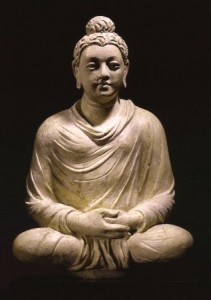 As axioms change, the familiar becomes uncomfortable. When ambitions begin to serve a higher purpose, motives are questioned from a lower perspective. Embarking upon a noble path may require officiating a farewell to imbalanced knowledge and its’ associations.
As axioms change, the familiar becomes uncomfortable. When ambitions begin to serve a higher purpose, motives are questioned from a lower perspective. Embarking upon a noble path may require officiating a farewell to imbalanced knowledge and its’ associations.
We often try to manage or balance the good with the bad in an attempt to live up to the ideals approaching a fully embodied existence. Though it’s an open minded approach to embracing the world, it’s not always possible. Sometimes it’s not even a good idea. I’m on-board with the perspective that the world outside of me is no different than the world inside of me. But the view of ‘the world’ is limited to natural environment and the natural order of things. Discrimination is the process that separates the true nature of the world from mankind’s perspective of the world. Proper discrimination is the first step to embodiment.
Yoga teaches us of the reciprocity of the universe and mankind’s inherent duality. We learn that there are aspects of life, such as the energy of Shakti, the creative ever flowing potency of life, that we strive to align with and tap into, but there is also the energy of Kali, the death, decay and darkness that we put the farthest from our mind, yet it patiently awaits all of us.
When we get to the core components of existence without exercising our judgment over them, our affair of flesh and bone is a simple concept. We acquire the elements of the five basic  needs to ensure the survival of the body up until the point of our demise. Few of us approach our existence with this basic idea that we’re merely a biological construct with an expiration date. We search for, find and convey meaning in our existence. We aspire to ideals that are not within the grasp of our own reality and attempt to adhere to teachings outside of our own nature. As we strive to live in the alignment of all things good, just and fair, we put the reciprocity of our own nature in the farthest recesses of our mind.
needs to ensure the survival of the body up until the point of our demise. Few of us approach our existence with this basic idea that we’re merely a biological construct with an expiration date. We search for, find and convey meaning in our existence. We aspire to ideals that are not within the grasp of our own reality and attempt to adhere to teachings outside of our own nature. As we strive to live in the alignment of all things good, just and fair, we put the reciprocity of our own nature in the farthest recesses of our mind.
The process of trying to exist solely on one part of a two-part system sets us up for suffering. We strive for security, stability and stillness as we reside on a rock-ball that orbits a spherical fire set into motion by violent actions so old we cannot grasp their origins. We continue to search for ways to preserve health, youth and stave off death though we are bound by the same cycles of life and death as the rest of our environment. Though the constituents of our bodies are as timeless as the origins of the universe, we reference our existence as minute spans of time to describe our age. Some of us exert effort at trying to prove we are special as we ignore the fact that the iron, formed only in the super massive heat and gravitational forces of dying stars, courses through our veins.
Buddhists recognized the natural behavior of grasping at life leads to suffering. Their approach to this was the practice of equanimity. 
(Buddhist poem from the Therigatha)
If your mind becomes firm like a rock
and no longer shakes
In a world where everything is shaking
Your mind will be your greatest friend
and suffering will not come your way.
Equanimity approaches experience with complete openness, without being lost in reactions of likes and dislikes. Without equanimity, we gravitate to that which is pleasurable leaving that which is not pleasurable at a distance or completely ignored. This approach to life does not cultivate the full extent of embodiment. Without equanimity we might demand that happiness occur in the ways that we think it should, rather than being open and full of love while things exist as they are. Equanimity fortifies compassion with courage and gives us the ability to love life and the world though we know of the pain and cruelty that exists.
 In John 15:18 Jesus was quoted with saying “If the world hates you, keep in mind that it hated me first.” The view of equanimity is not congruent with the consensus perspective of the world. The world loves their own. Christ’s perspective was based on the equanimity of seeing all as equal creations of the divine. The violence of the crucifixion was mankind’s ignorant reaction to Christ’s divine wisdom. If you are on the path of yoga, embodiment, fulfillment or any path of higher self-discovery, you will eventually encounter equanimity. As your perspective of the world is shaped by practicing equanimity, you too, may also encounter opposition or judgment. If your reaction to the world around you no longer resembles your peers, you may find acquaintances fall away. It’s also possible that the transformation of your qualities may come as a shock to family or loved ones who may reach out to ‘help’ you. As your mind becomes your greatest friend, you may no longer require imbalanced relationships. As you continue your journey, remain strong and true to all that you are and know that others who have walked this path have encountered the same struggles and hardships with being in this world, but not of this world.
In John 15:18 Jesus was quoted with saying “If the world hates you, keep in mind that it hated me first.” The view of equanimity is not congruent with the consensus perspective of the world. The world loves their own. Christ’s perspective was based on the equanimity of seeing all as equal creations of the divine. The violence of the crucifixion was mankind’s ignorant reaction to Christ’s divine wisdom. If you are on the path of yoga, embodiment, fulfillment or any path of higher self-discovery, you will eventually encounter equanimity. As your perspective of the world is shaped by practicing equanimity, you too, may also encounter opposition or judgment. If your reaction to the world around you no longer resembles your peers, you may find acquaintances fall away. It’s also possible that the transformation of your qualities may come as a shock to family or loved ones who may reach out to ‘help’ you. As your mind becomes your greatest friend, you may no longer require imbalanced relationships. As you continue your journey, remain strong and true to all that you are and know that others who have walked this path have encountered the same struggles and hardships with being in this world, but not of this world.
